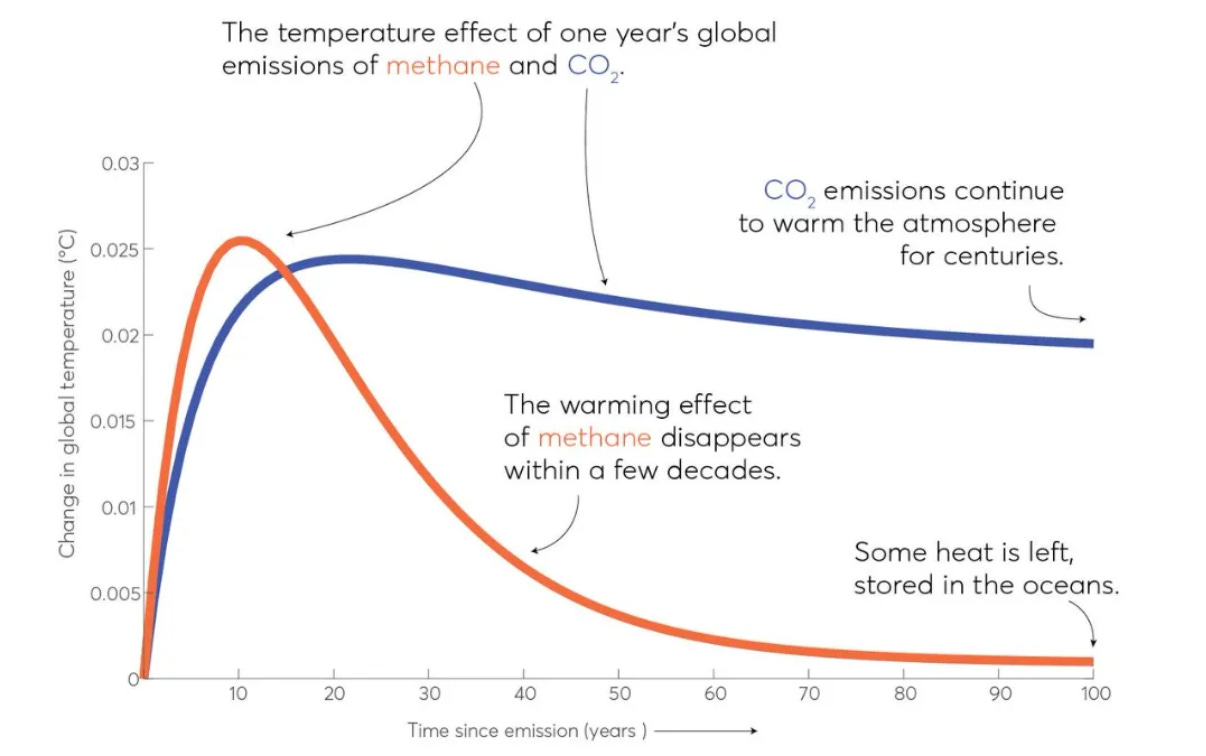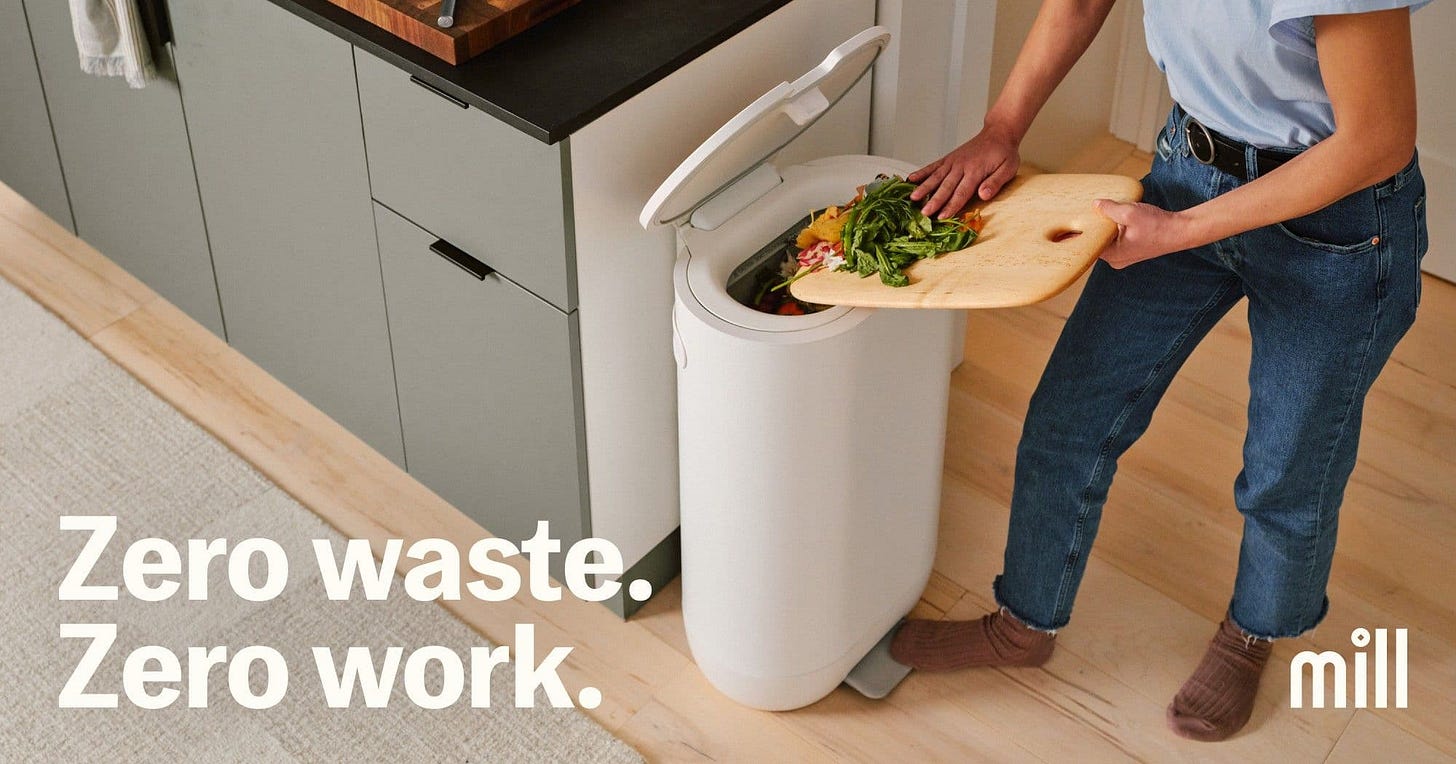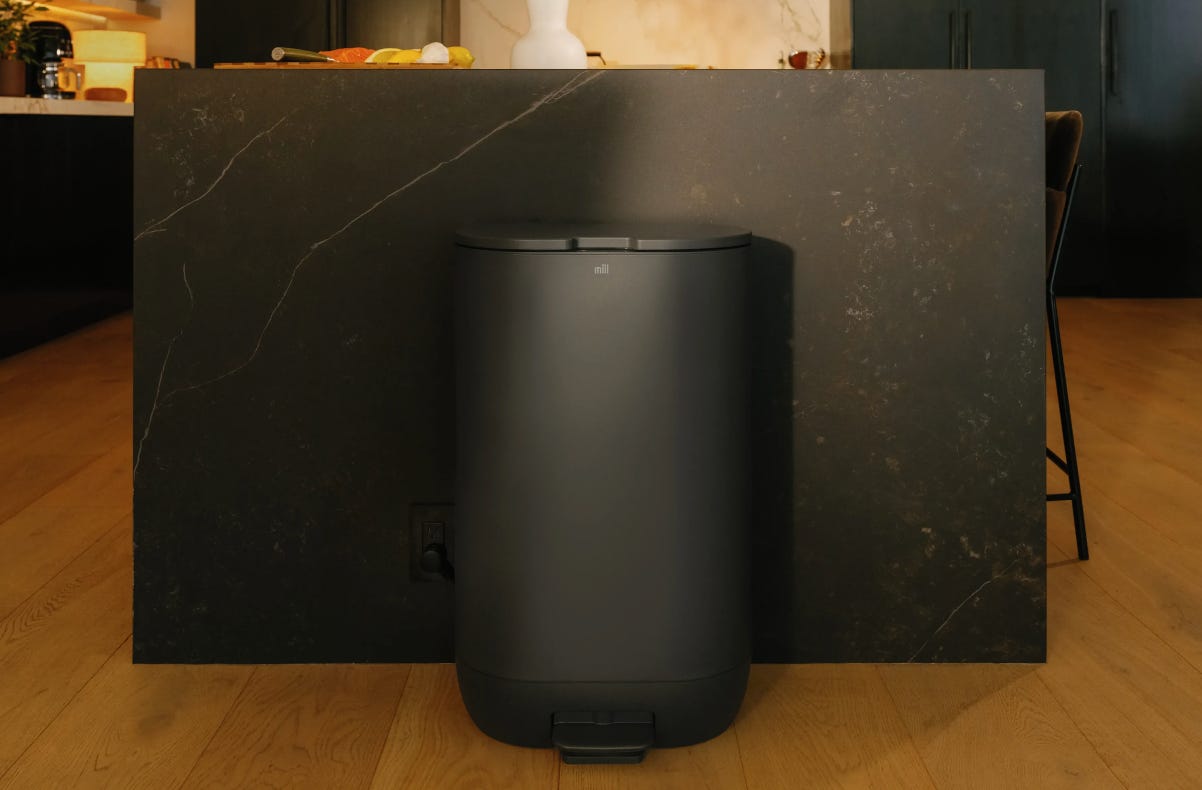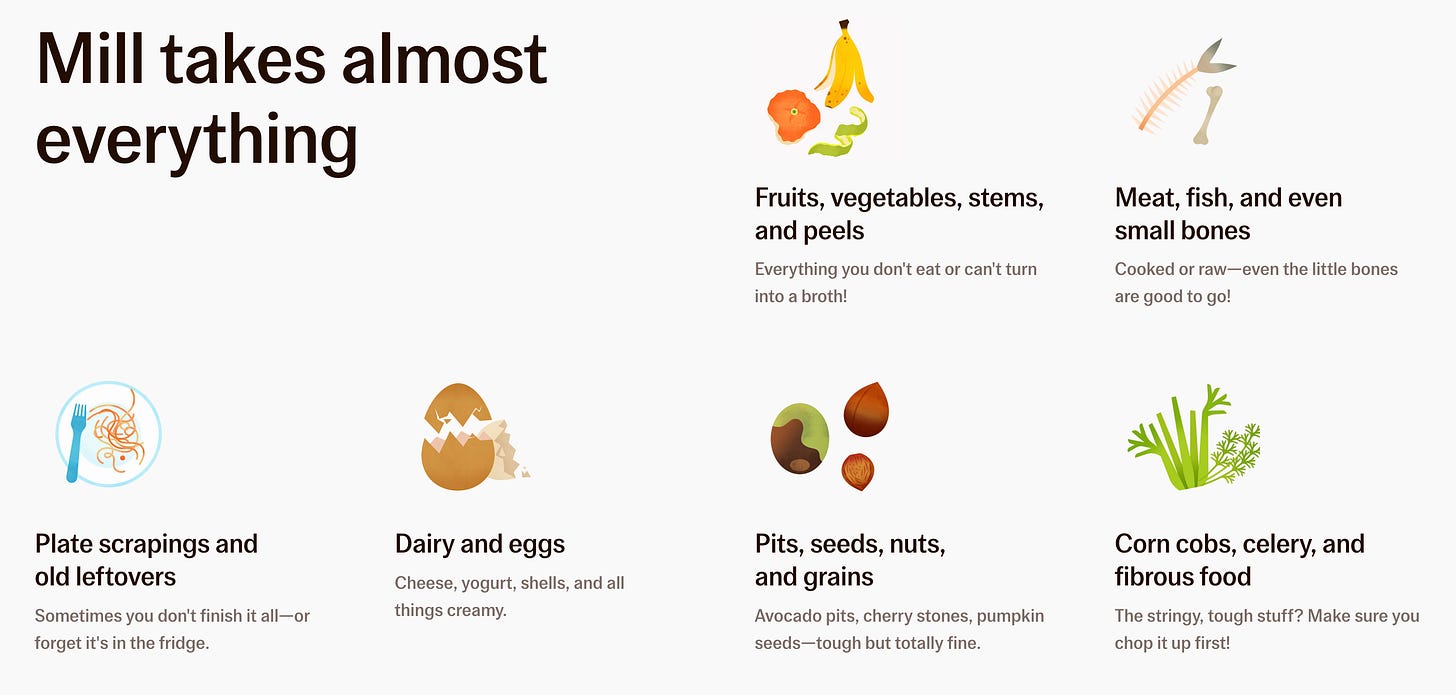#78 Mill
Food waste magic
Read time: 5 minutes
Hi, I’m Javi Gascón.
This is Climate Tech Distillery, a newsletter where I talk about one specific climate tech company every week.
Today we’ll distill a company that creates smart bins that turn food scraps into valuable, odorless, nutrient-rich grounds: Mill 🇺🇸
Want to sponsor Climate Tech Distillery? Here’s all the info.
What Problem Does Mill Tackle❓
They deal with household food waste that ends up in landfills, where it decomposes and releases methane.
1. Massive Scale: Uneaten food is the most common material in landfills and 30% of it comes from homes and businesses. 58% of methane emissions from landfills come from food waste, contributing a lot to climate change.
2. Methane’s Impact: When food rots in landfills, it produces methane, a greenhouse gas that’s 80x more potent than CO₂ over a 20-year period. All of this food waste breaking down into methane is driving 6% of all warming.
3. Composting Barriers: It requires outdoor space, regular maintenance, attracts pests, produces odors, and takes significant time and effort. Most give up and just through food scraps in the trash.
4. Broken Food Cycle: Food scraps contain valuable nutrients that could nourish soil and feed animals, but instead they’re permanently removed from the food system. The “take-make-waste” model wastes both the resources used to produce the food and the potential nutrients the scraps contain.
Product / Service 📦
Mill created the first fully automated food recycling system that turns household food scraps into a valuable resource while eliminating all the hassles of traditional composting.
Fully Automated: The device grinds and dehydrates food scraps while you sleep into clean, dry “Food Grounds”. Smart sensors and adaptive algorithms tell your Mill when to run and for how long (even if you add food mid-cycle). The full cycle takes less than 24h.
Convenient and Odorless: It accepts nearly everything, from avocado pits to chicken bones. Since it reduces food volume by 80%, you only need to empty it every 2-3 weeks. Replaceable filters made from upcycled coconut shells last a full year and block 99.9% of odors.
Closed-Loop Service Model: The nutrient-rich grounds can fertilize your garden, feed backyard chickens, or be sent back to Mill via prepaid boxes where they’re distributed to small independent farms as premium chicken feed.
All-Inclusive Membership: Subscription costs $360 annually, including the device, filter replacements, unlimited repairs, and optional grounds pickup—no hidden costs.
Sexy Design: Crafted by former Apple and Nest engineers with a sleek countertop design that fits seamlessly into modern kitchens. The bin syncs with an app that tracks how much food waste you’ve diverted from landfills, providing real-time impact data and insights into the household’s waste patterns.
Market 🌐
The US food waste management market was valued at $44 billion in 2024 and is projected to grow to $72 billion by 2033. Consumer awareness about climate change, government regulations targeting food waste, and corporate sustainability commitments are driving this growth.
Other Key Players
Lomi 🇨🇦: Electric countertop composter that uses heat and grinding to break down food scraps in 4-20 hours. Cheaper than Mill but requires manual emptying after each cycle and doesn’t offer pickup service.
Reencle 🇰🇷: Uses live microbes to break down food waste. Creates genuine compost but requires ongoing maintenance of microbes and takes longer to process waste.
Founding Story 🦄
Mill was founded in 2020 by Matt Rogers and Harry Tannenbaum, who worked together at Nest, building the iconic thermostats and other smart home products.
After leaving Nest (acquired by Google), Rogers became obsessed with food waste. “This feels like the most tractable of all climate problems,” he said.
Early on, the small team met every day over Zoom, discussing research papers and what they had learned talking with food waste experts. The breakthrough came when they partnered with the U.S. Postal Service for customer pickup—filling empty trucks on return routes.
They launched publicly as Mill in January 2023 and since then they’ve raised over $100 million from Google Ventures, Lowercarbon Capital, and other top VCs.
They now have tens of thousands of households signed up and in early 2025 they launched “Mill for Workplace,” offering bins and analytics for hotels, office buildings, and universities.
Top Impact Stats 📈
1. 10 million pounds of food waste diverted from landfills by 2025.
2. Over 90% of users recycle food scraps after adopting Mill, up from 26% before.
3. Typical households using Mill avoid about 520 kg CO₂e emissions per year and reduce their food waste generation by 20% within a few months.
Whenever you’re ready, there are 2 ways I can help you:
Scale and optimize your climate business: I build low-code automation systems for climate companies so they can free up time to scale their revenues and their climate impact.
Give visibility to your climate company: Get your company in front of an audience of thousands of climate players and enthusiasts by sponsoring newsletter issues and LinkedIn posts.
Thanks for reading today’s issue! If you liked it feel free to hit the ❤️ button and share it with someone who might like it too. See you next Saturday:)










